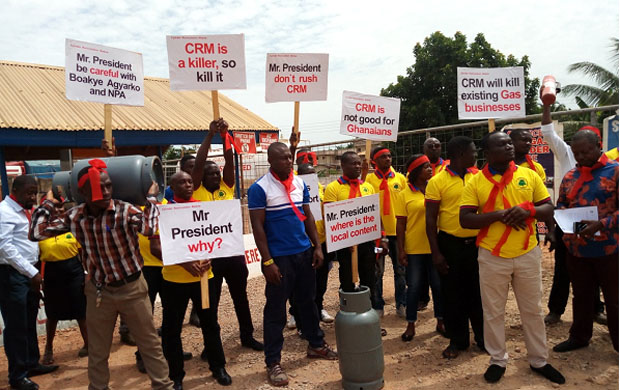Some members of the association
The Ghana Liquefied Petroleum Gas Operators Association (GLiPGOA) says it has rejected government’s LPG Cylinder Recirculation Model (CRM).
According to the association, the CRM policy cannot address safety issues, as the New Patriotic Party (NPP) administration wants Ghanaians to believe.
At a press conference held on Wednesday in Accra, the association said that government, through the policy, is simply seeking to migrate risk in the sector, saying the new policy comes with more dangers.
Citing examples in India, China and the USA, the GLIiPGOA argued that CRM has caused catastrophes around the world and could create similar problems in the country.
A member of the association, who made a presentation at the press conference, Kofi Azanku, stated that the CRM policy would not be effective since auto consumers would continue to purchase from gas stations.
Bulk distributors would still distribute gas to the bulk categories which include schools, hotels etc. To us, the value was the same, he said.
Mr. Azanku indicated that the policy failed drastically in Ghana in the late 1990s.
“It has not benefited Indians who have been using it for a while, as there have been countless gas explosions in that country.
He stressed that “the CRM policy is not the panacea of safety, it does not improve penetration and it is a hidden private interest among others.”
President Akufo-Addo endorsed the CRM policy in October 2017 to help tackle numerous gas explosions in Ghana, especially in Accra.
Under the policy, filling station firms would be responsible for filling cylinders at the plants for onward distribution to end users.
But GLiPGOA insisted that with the CRM policy, there would be many LPG trucks on the roads which could lead to gas explosions.
GliPGOA is therefore pleading with government for new procedures and safety proposals.
By Melvin Tarlue & Naki Odonkor


